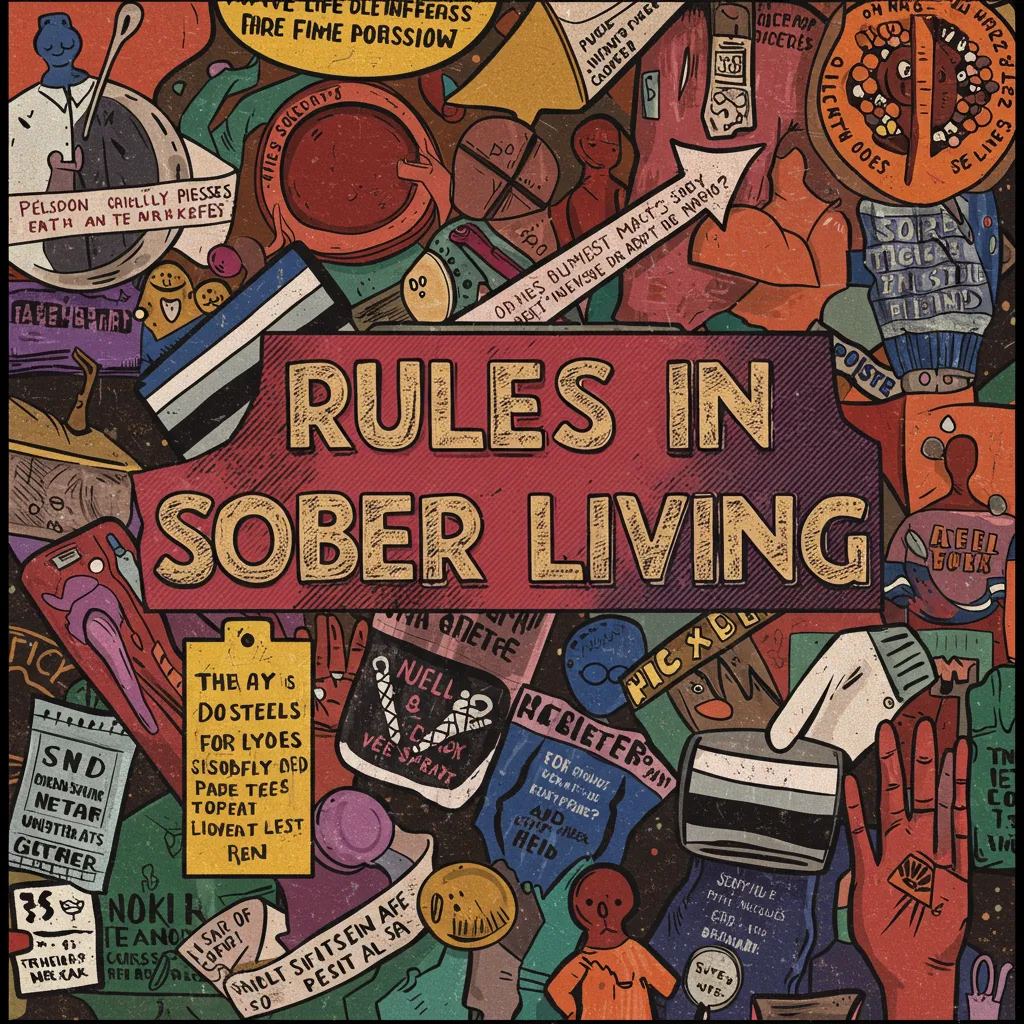
Rules You Can Expect in a Sober Living Environment
Starting your journey in a sober living home can feel both exciting and overwhelming. Understanding what to expect helps ease the transition and sets you up for success. While each sober living facility has its own specific guidelines, most share common rules designed to create a safe, supportive environment for everyone in recovery.
Why Rules Matter in Sober Living
Sober living house rules aren't meant to restrict your freedom—they're designed to protect your sobriety and create structure during a vulnerable time in your recovery journey. These guidelines help establish healthy routines, maintain accountability, and foster a community where everyone can focus on their healing.
Core Rules You'll Encounter
Zero Tolerance for Substances
The most fundamental rule in any transitional living facility is maintaining complete sobriety. This means:
No alcohol, illegal drugs, or unprescribed medications on the premises
Regular drug and alcohol testing
Immediate consequences for any substance use, typically including discharge from the program
No paraphernalia or substances allowed in personal belongings
Curfew and House Schedule
Most structured sober living environments implement curfews to maintain order and safety. Common schedule requirements include:
Evening curfews, typically between 9 PM and 11 PM on weeknights
Extended weekend hours with reasonable return times
Mandatory participation in house meetings
Quiet hours to respect other residents' sleep and recovery
Treatment and Recovery Participation
Recovery housing emphasizes active participation in your healing process. Expect requirements such as:
Attendance at AA, NA, or other 12-step meetings
Individual therapy or counseling sessions
Group therapy participation within the house
Regular check-ins with house managers or counselors
Financial Responsibilities
Residents must demonstrate financial accountability through:
Timely payment of rent and fees
Maintaining employment or actively seeking work
Contributing to household expenses and utilities
Managing personal finances responsibly
Household Duties and Maintenance
Sober living communities function as shared living spaces where everyone contributes:
Assigned chores and cleaning responsibilities
Meal preparation duties on rotation
Maintenance of common areas
Respect for shared spaces and property
Visitor and Guest Policies
To maintain a safe environment, most facilities have strict policies regarding:
Advance approval required for all visitors
Designated visiting hours and areas
Restrictions on overnight guests
Background checks for frequent visitors
Communication and Conflict Resolution
Healthy communication is essential in recovery housing. Rules typically address:
Respectful communication with all residents and staff
Proper channels for addressing conflicts or concerns
Participation in house meetings and group discussions
Zero tolerance for threatening or aggressive behavior
Personal Conduct Standards
Sober living environments maintain high standards for personal behavior:
No gambling on the premises
Restrictions on romantic relationships with other residents
Appropriate dress codes in common areas
Respect for others' recovery journeys and boundaries
Technology and Privacy Guidelines
Modern sober living facilities often include rules about:
Appropriate use of phones and internet during designated times
Social media guidelines to protect privacy and safety
Respect for others' privacy and personal space
Limitations on entertainment that might trigger cravings
Consequences and Accountability
Understanding the consequences of rule violations helps maintain the integrity of the program:
Warning systems for minor infractions
Temporary restrictions or increased supervision
Possible discharge for serious violations
Opportunities for redemption and learning from mistakes
Making the Most of Your Sober Living Experience
Remember that these rules exist to support your recovery, not hinder it. Embracing the structure and accountability can accelerate your healing and help you develop lifelong skills for maintaining sobriety.
The addiction recovery housing environment provides a unique opportunity to practice living sober while still having professional support and peer encouragement. Many residents find that the initial adjustment period leads to greater confidence and independence.
Your Recovery Journey Starts Here
Living in a structured, supportive environment can be transformative for your recovery. The rules and expectations create a foundation of stability that allows you to focus on healing, building healthy relationships, and developing the skills you need for long-term sobriety.
If you're considering sober living as part of your recovery journey, understanding these common expectations can help you prepare mentally and emotionally for this important step. The structure might feel restrictive at first, but most residents quickly discover that these boundaries actually provide the freedom to focus entirely on their recovery without the distractions and temptations of the outside world.
Ready to take the next step in your recovery journey? Trinity House offers a structured, supportive sober living environment designed to help you build the foundation for lasting sobriety. Our experienced staff and proven program create the perfect balance of accountability and independence. Contact us today to learn more about our sober living community and how we can support your path to recovery. Call us now or visit our website to schedule a tour and see how Trinity House can help you build the life you deserve.
